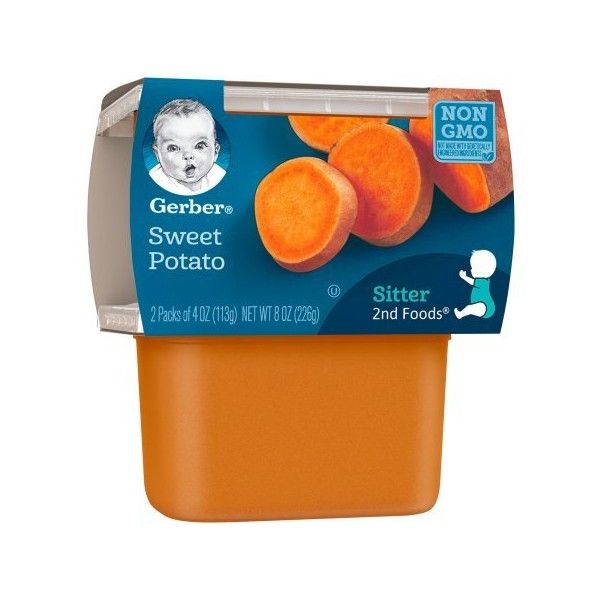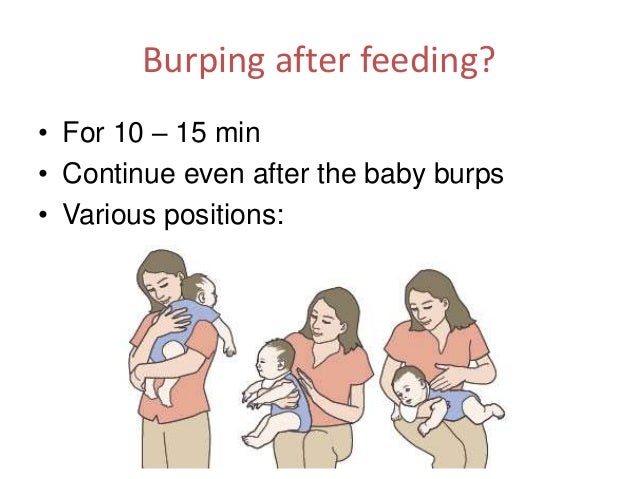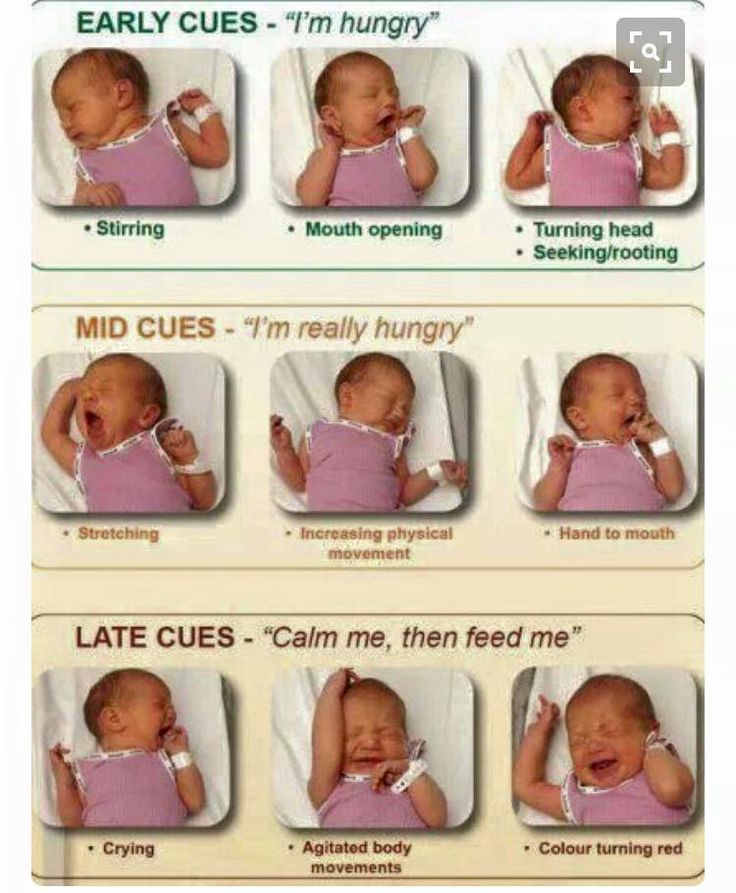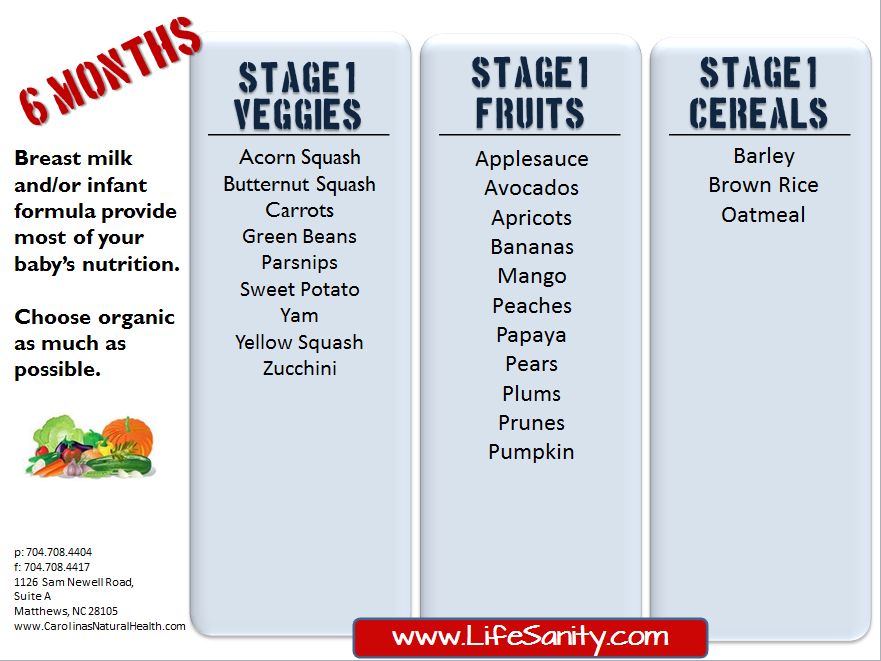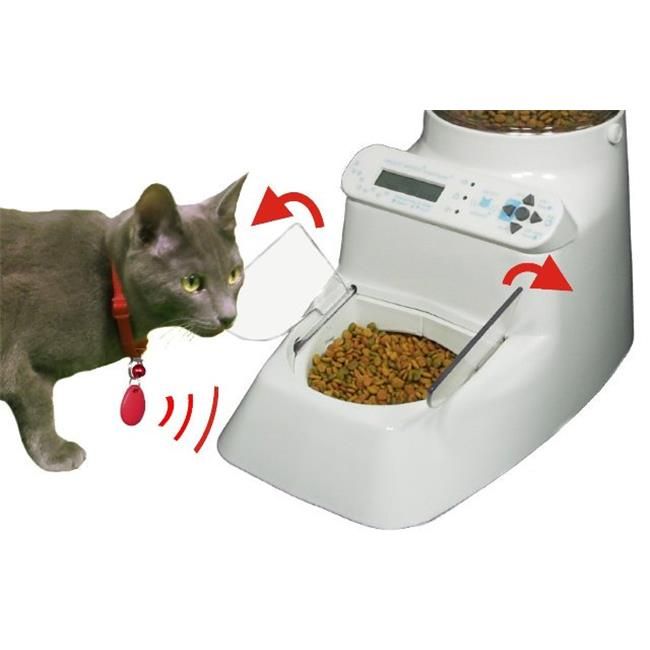Baby hits bottle while feeding
Why Does My Baby Hit His Bottle While Eating (And Is It Okay?)
Disclosure: Some of our articles contain links to recommended products or services in which we may receive a commission if you make a purchase.
Since we can’t communicate with our babies, it can be incredibly frustrating trying to figure out why our little ones behave the way they do. Actions that we as adults may consider misbehavior aren’t malicious, but what do they mean? What does it mean if your baby is hitting his bottle during feeding time?
A baby hitting his bottle while feeding is normal behavior and can likely be attributed to one of several things: your baby is frustrated with the nipple flow and he’s not getting enough milk, your baby is discovering the use of his hands and is trying to hold his own bottle, or your baby is getting distracted and does not want to feed currently.
Keep reading to understand more about why your baby hits his bottle while feeding and learn a couple of tips to stop this from happening.
Table of Contents
Why do babies slap or hit their bottles while feeding?
It can be frustrating when it feels like your baby is fighting you at every turn, and this may include when your little one slaps at or hits his bottle while feeding.
There are three main reasons that your baby may be slapping at his bottle during feeding time:
- He’s distracted or frustrated
- He wants to hold the bottle himself
- The milk flow is not fast enough
Regardless of the reason why your baby is hitting his bottle, this action is considered normal. As long as the baby is not hurting himself or others, it should not be a cause of concern. If you think something is wrong with your baby, it is best to talk to your doctor about this behavior.
Distracted or frustrated
According to WebMD, slapping or hitting a bottle while feeding is a sign that the baby is getting distracted or getting frustrated.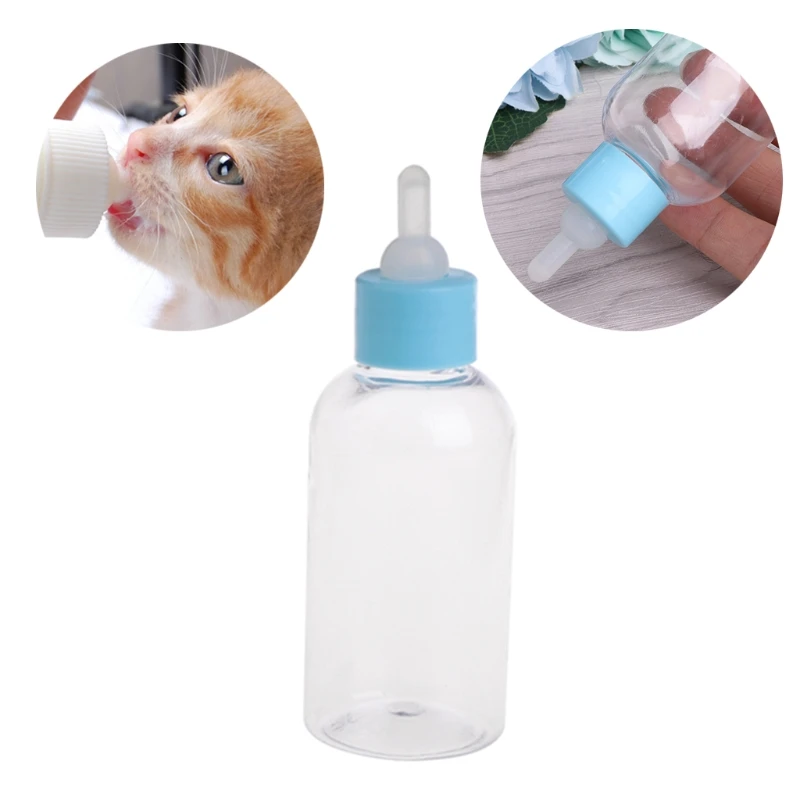
Babies are sensitive creatures and they can pick up how mom or dad or their caregiver is feeling. If you are feeling anxious about bottle-feeding, your baby will sense this and will try to emulate the same feeling by hitting or swatting their bottle away.
Hitting the bottle can be a sign of bottle refusal and you can get rid of this habit by creating a good and positive feeding environment with your baby.
Getting distracted while feeding is an issue because it means that your baby might not get all the formula or breastmilk that he needs to sustain him for some time and he will get hungry sooner.
Developing motor skills
Around the time your baby is 4 to 6 months, his motor skills are developing and evolving.
This means that his arms or legs will wiggle or kick more and arm wriggling can translate to your baby hitting his bottle while feeding. Doing this gesture can mean that your baby is practicing this newly-found skill.
When babies start to discover what their hands can do, they will keep doing it.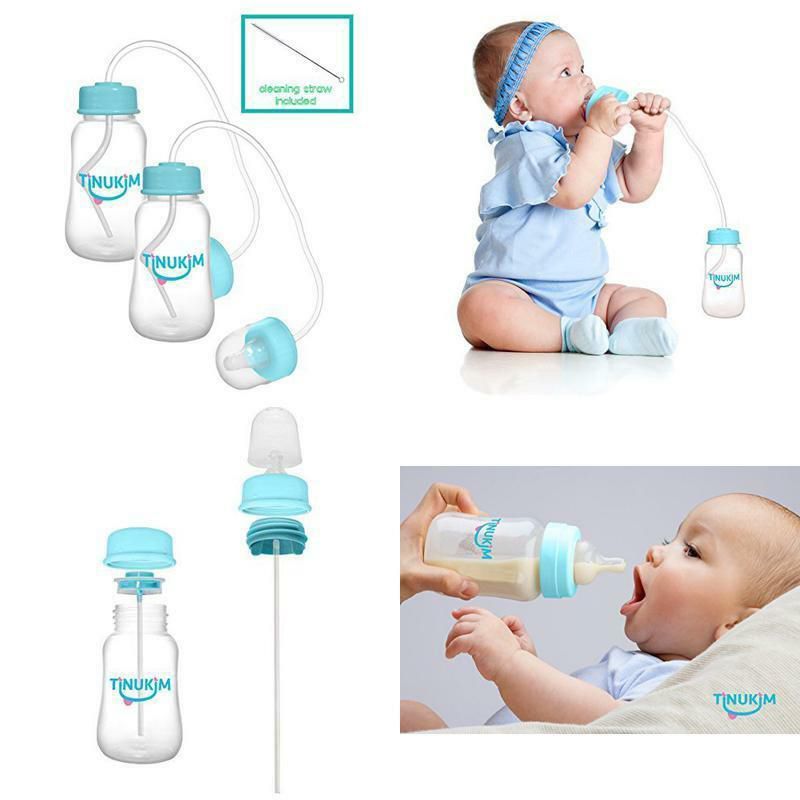 This includes hitting, slapping, pinching, and grasping things.
This includes hitting, slapping, pinching, and grasping things.
During this developmental period, your baby is also trying to master hand-eye coordination and will try to swat things that they see – and this includes his bottle when he’s feeding.
Babies trying to hit their bottles is also a sign of them wanting to hold the bottle themselves. For babies who are too young or not developmentally ready, this movement might look like they’re hitting the bottle.
Inadequate milk flow
Although most of the time your baby hitting his bottle may be a sign of distraction or a developmental milestone, it can also mean he’s frustrated and even trying to communicate with you.
Your baby hitting his bottle may be a sign that he’s not getting milk (or formula) fast enough.
If this is the case, you will want to inspect the bottle and ensure that it’s being held correctly, there is an adequate amount of milk available, and that there is no restriction in the milk flow.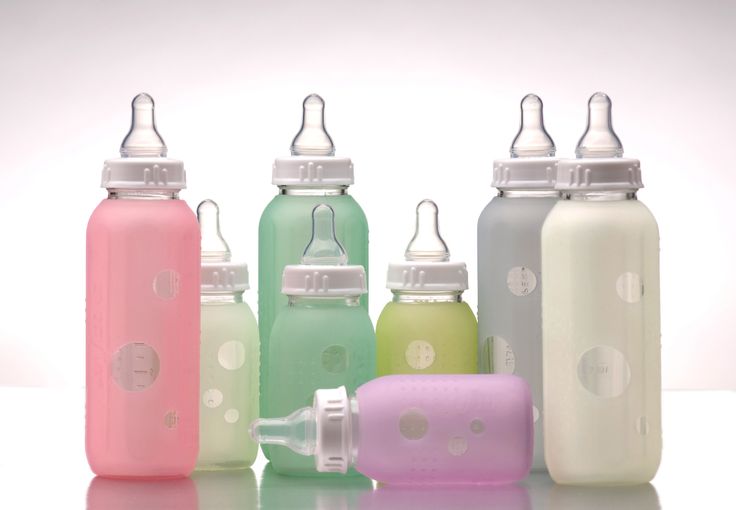 If everything looks right, it may be time to move up to the next nipple size.
If everything looks right, it may be time to move up to the next nipple size.
What if the baby is hitting the bottle out of your hand while feeding?
In the beginning, your baby swatting at his bottle is likely to be annoying, but not really a detriment to feeding. What happens once he’s able to knock it out of your hand?
If your baby is hitting the bottle hard enough that it starts to fall or drop to the floor, it is best to take the bottle away or change his feeding position so he can’t swat the bottle away.
When feeding your baby, it is best to do it in a quiet environment that’s free from distractions to minimize the chances of your baby getting distracted.
If your baby keeps hitting the bottle, you might have to stop the feed, wait for him to calm down, and resume feeding.
If you think he is getting frustrated by the milk flow, it might be worthwhile to change the nipple to a faster flow. You will know if your baby is getting frustrated when he is crying or whining while on the bottle.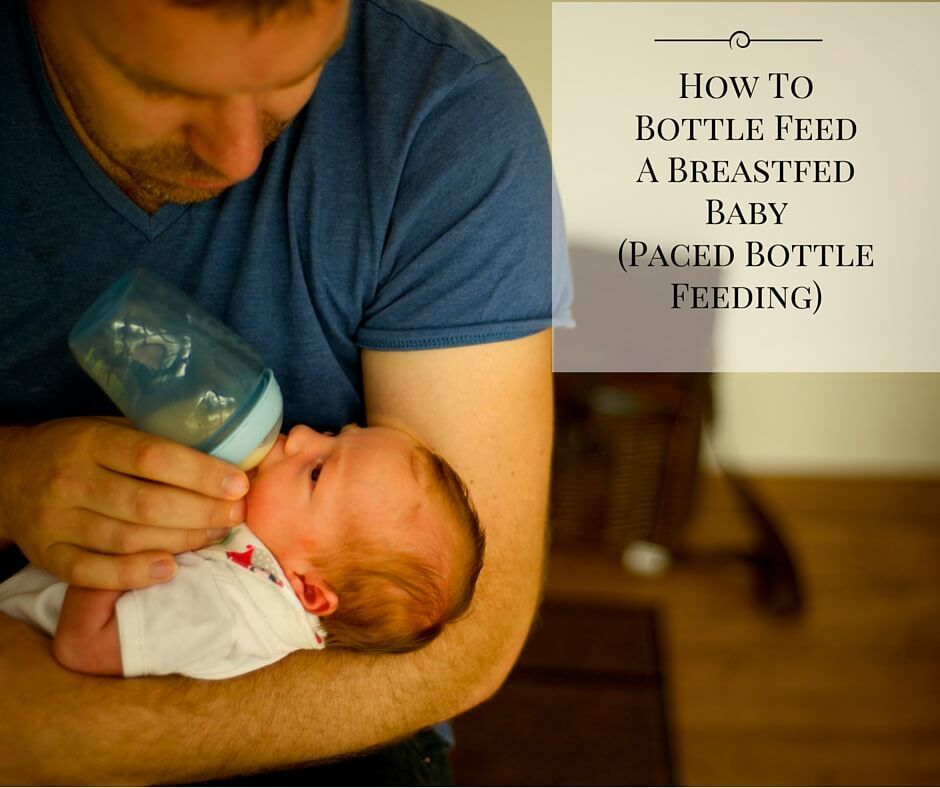 You might have to try and experiment with different brands and nipple flows before you can find the best one that your little one likes.
You might have to try and experiment with different brands and nipple flows before you can find the best one that your little one likes.
3 ways to help deal with a baby that hits the bottle while eating
A baby trying to slap or hit his bottle repeatedly can be frustrating for both mom and baby and since babies can’t necessarily verbalize how or why they’re doing this – it’s up to us to find out why so we can help them.
If your baby is hitting his bottle, try:
- Changing the feeding environment
- Letting him hold onto something else
- Using faster flow nipples
Change the feeding environment
If your baby is acting super distracted and can’t focus on feeding, it might be a good idea to change the place where you are feeding him. An area that has too many things going on, too many things to see or hear is not an ideal place to feed a baby because he will keep getting distracted.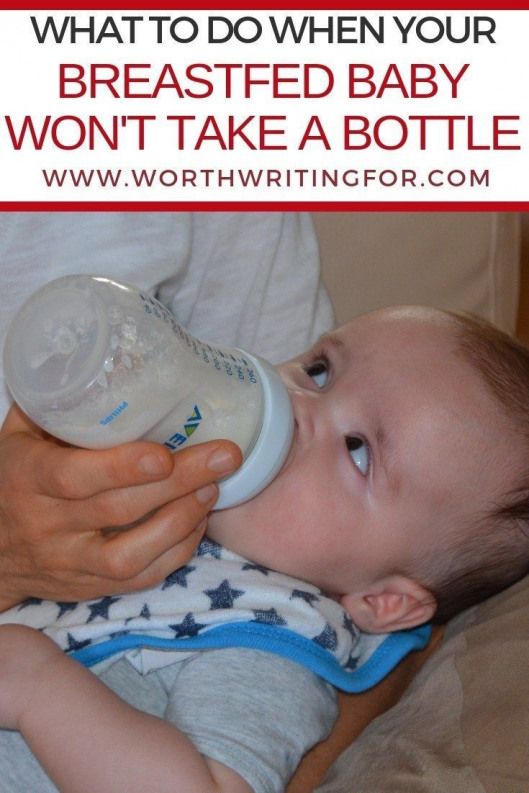
Finding a nice, quiet area that is dimly lit will help to minimize the distractions and keep your baby focused on one thing – which is feeding.
If you are outside your house, you can try putting your baby in a nursing blanket to put a barrier between her eyes and the outside world that’s full of distractions.
Let him hold on to something else
A baby hitting his bottle is a sign that he wants to hold on to something while he’s feeding.
Give him something else to hold so he can feed comfortably while also giving his little hands something to do.
You can give him a lovey to hold, a teething necklace, or even your hand so that he can hold on to something and leave his bottle alone.
Try using faster flow nipples
When it comes to babies, it’s all about the flow of milk.
A baby who is hitting his bottle might be a frustrated baby trying to get more milk out.
If you think your baby is getting frustrated with the flow, you can try experimenting with other styles of nipples or going up a size.![]()
Why Does Baby Hit A Bottle While Drinking? (Solutions That Work!)
When it comes to baby feeding, the reality is that it’s very seldom plain sailing. Once you’ve eventually found the right bottle, there’s the cleaning and storing. When that’s all sorted there’s a short window of seemingly easy feeding. The next stage begins when your little one starts hitting their bottle while drinking. What does this mean? What should you do about it?
There are a few reasons that might be attributed to babies hitting their bottle while feeding. Frustration with the nipple flow and trying to hold their own bottle are only two reasons why your baby may be hitting their bottle. While alarming at first, it’s a normal part of feeding in older babies.
Table of Contents
Key takeaways
- It’s perfectly natural for babies to hit their bottles
- Your little one may be frustrated, bored or simply learning to use their hands
- The baby may be trying to hold the bottle themselves
- There are a few tips you can implement to reduce bottle swatting
Is it common for a baby to hit the bottle while feeding?
You’ll be easily forgiven for thinking your baby hitting their bottle is concerning if it’s your first baby.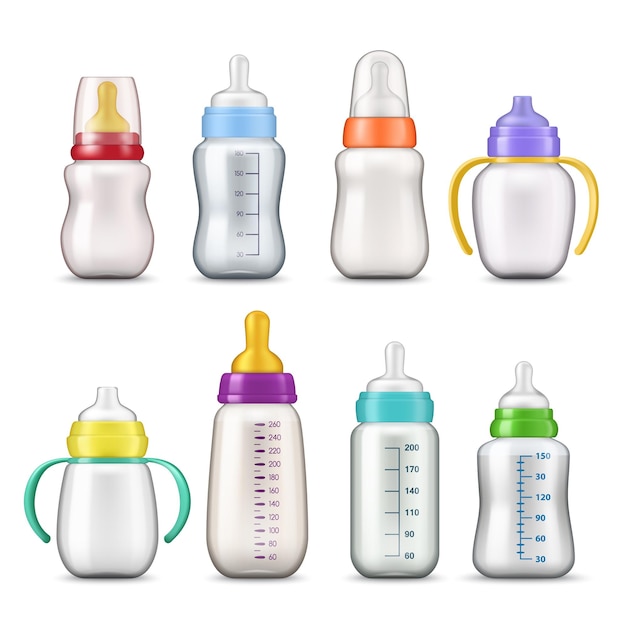 Fortunately, there’s nothing wrong with the baby or the milk. Hitting their bottles is a natural part of feeding as babies grow and become more self-aware. It’s important to note that your baby isn’t hurting themselves.
Fortunately, there’s nothing wrong with the baby or the milk. Hitting their bottles is a natural part of feeding as babies grow and become more self-aware. It’s important to note that your baby isn’t hurting themselves.
Why does a baby hit the bottle while feeding?
Essentially, there are several top reasons why little ones slap or hit their bottles during feeding time. Let’s dive in and highlight a few of these.
Your baby is frustrated
Babies, like adults, can also get frustrated with factors in their surroundings. For instance, if the parent is feeling stressed or anxious, the baby will pick up on it. Too much noise in the room can also be distracting and could be making the baby frustrated.
Your baby is full
The general rule is that your baby should drink 1 to 2 ounces of formula or milk every 2 to 3 hours as newborns and more as they grow. However, you’ll soon learn that babies don’t stick to the rules! A common reason for swatting the bottle away or slapping at it stems from your baby being full, and not wanting any more to drink. This can happen without them having had the usual amount of milk.
This can happen without them having had the usual amount of milk.
Gently take the bottle away and see if they reach to take it back or start fussing. If the slapping is a result of being too full, your baby won’t mind if you take the bottle away.
Your baby is discovering the use of his/her hands
Another common reason for your baby to be hitting at their bottle can be attributed to their developing motor skills. For most babies, this happens between 4 to 6 months. When this happens, your baby will start kicking more and wriggling their arms, especially during feeding and changing.
Your baby will also start realizing that their hands can do different things such as grab, hit and pinch. And, since the bottle is right there, it’s a good item to hit.
Your baby is getting distracted
As babies grow they become easily distracted by the sights and sounds in the room or surrounding area. Your little one may also be distracted by toys they see in the crib or around the room. The baby may also be trying to get your attention to get out of the crib.
The baby may also be trying to get your attention to get out of the crib.
Milk flow isn’t fast enough
In many instances, your baby hitting their bottle is a clear indication that they aren’t getting enough milk and they want to drink faster. The formula might not be flowing fast enough to their new developmental stage. If you see your little one slapping their bottle, start by checking if the nipple is still providing the right flow.
It might be time to upgrade to the next nipple size in the range.
What can happen if a baby fights the bottle?
The real reason many parents are concerned about their baby slapping at their bottles is that they fear the little one will hurt themselves. Depending on the bottle and how hard the baby is hitting the bottle, this could happen.
Additionally, trying to drink while simultaneously slapping the bottle can result in choking. Always keep an eye on your baby during feeding.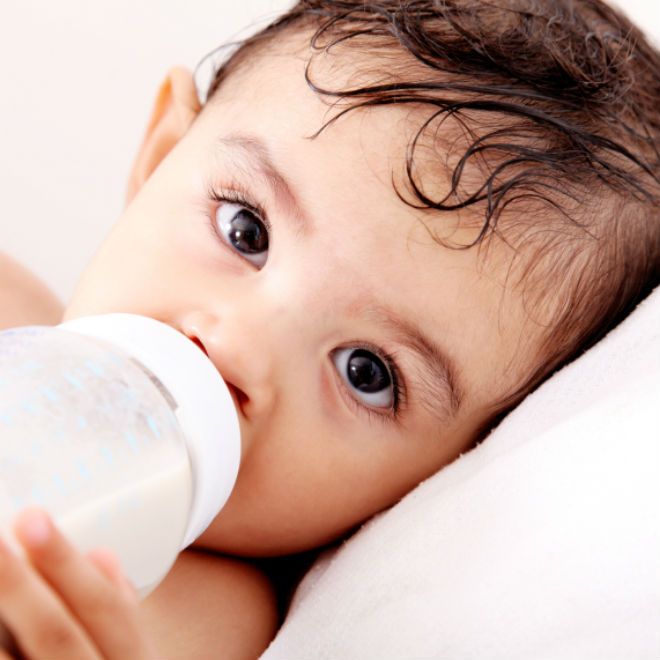
Do babies fight bottles while teething?
If you don’t know this already, you will soon discover that your baby’s teething phase can be a nightmare. It affects every aspect of their little lives. And that includes whether or not they want their bottle. Again, there’s no hard and fast rule here. Some babies prefer to suck on their bottles to ease itching gums. Other little ones don’t want anything in their mouths and will slap the bottle away.
If you don’t want your little one slapping their bottle the whole time, try switching to a pacifier to help with teething, if you haven’t already!
How to prevent your baby from fighting a bottle
Despite being a natural part of growing, there are a few things you can do to reduce your little one fighting their bottle.
- Don’t feed your little one before feeding time: Ensure they’re sufficiently hungry. However, you might want to give her milk before a mealtime (breakfast) when introducing solids.
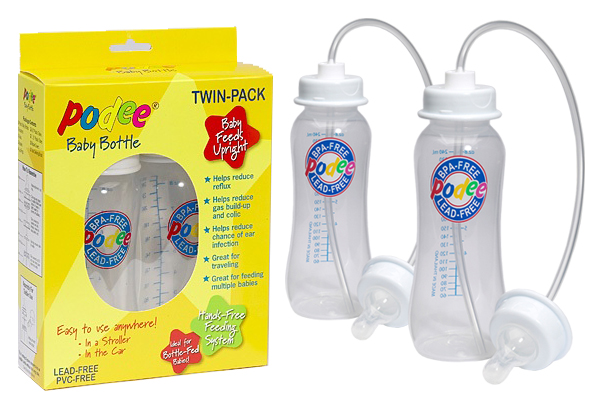 Another exception is of course feeding your baby (e.g. with pre-made formula) during the night when they’re small.
Another exception is of course feeding your baby (e.g. with pre-made formula) during the night when they’re small. - Change the scenery: Opt for a spot that’s quiet and has minimal distractions.
- Check the milk/formula temperature: Ensure that the temperature of the milk isn’t too warm.
- Inspect the bottle: Ensure that the nipple is correct and that the baby is getting enough milk.
- Let someone else feed the baby: Alternating with your partner, or letting grandma help with the feeding will keep the baby from getting bored with the same old routine.
- Relax: Ensure that there is a calm and relaxed atmosphere around the little one when it’s feeding time – this will prevent the little one from getting distracted.
- Limit mealtimes: Create a routine where mealtimes only last 30 minutes. Not letting your little one keep their bottle too long will ensure they don’t get bored.

Here’s a short clip that illustrates some useful tips to get your baby to take the bottle.
Final Thoughts
There’s no need to be alarmed if your baby starts hitting their bottle. Follow the tips I’ve suggested to minimize the behavior. If your little one still seems to enjoy hitting their bottle, chalk it down to evolving motor skills. As long as the little one isn’t hurting themselves, there’s really no harm!
Another issue had to deal with in the past is the bottle becoming foamy. But there are some ways to prevent that from happening as you can read in my other article.
Author
Balint Horvath, PhD
I’m Balint, founder of this site and a father (and dad) to a baby-turned toddler. I found the world of babies so fascinating that I started a blog dedicated only to that topic. By the way, I studied physics, engineering (PhD, MSc), and therefore I do a thorough research when I write about something. Since it’s a blog, of course I also write about my personal experiences.
I found the world of babies so fascinating that I started a blog dedicated only to that topic. By the way, I studied physics, engineering (PhD, MSc), and therefore I do a thorough research when I write about something. Since it’s a blog, of course I also write about my personal experiences.
Colic - they pass! - articles from the specialists of the clinic "Mother and Child"
You can't confuse anything with anything
A healthy child was discharged from the maternity hospital, he grows and pleases his loved ones. Yes, the baby sometimes cries a little, but what children do not cry! Moreover, over time, mom and dad get used to their new role and gradually understand what their baby needs. Yes, and the reasons for crying are usually simple: the child wants to sleep or, conversely, to communicate, he is cold or hot, in the end, he most often just needs to eat! Later, when colic begins, that crying of the first days and weeks of life will seem to parents only a slight irritation or whims. But mom and dad don’t know this yet and just rejoice at how their son or daughter is gaining weight and gaining strength. And suddenly out of the blue it starts! Usually in the afternoon, a child who was completely calm before that first frowns, wriggles, twists his mouth, grunts, then such a cry is heard that at the first moment especially tremulous parents clutch at their hearts. The baby presses the legs to the stomach, and often beats the air with his hands, his face turns red from crying, and his stomach tenses. And suddenly the child stops. Gone? No, almost immediately everything repeats again. And so at least half an hour in a row, and as a maximum - several hours a day. In the end, the child's strength ends and he falls asleep in exhaustion. Exhausted parents, too. The next day everything starts all over again.
But mom and dad don’t know this yet and just rejoice at how their son or daughter is gaining weight and gaining strength. And suddenly out of the blue it starts! Usually in the afternoon, a child who was completely calm before that first frowns, wriggles, twists his mouth, grunts, then such a cry is heard that at the first moment especially tremulous parents clutch at their hearts. The baby presses the legs to the stomach, and often beats the air with his hands, his face turns red from crying, and his stomach tenses. And suddenly the child stops. Gone? No, almost immediately everything repeats again. And so at least half an hour in a row, and as a maximum - several hours a day. In the end, the child's strength ends and he falls asleep in exhaustion. Exhausted parents, too. The next day everything starts all over again.
If you are very lucky, then such attacks will last only one or two times per evening for 30 minutes - 1 hour. On average, the attack lasts up to 3 hours. But there is a worse option: every day the strength, duration and frequency of screams will increase, until in the end the child starts screaming every two hours in the morning, and in the afternoon, and in the evening, and at night, of course.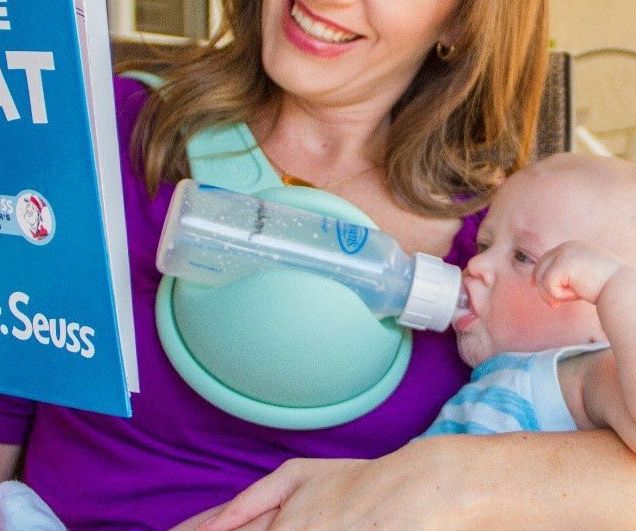 It will seem to parents that now this one is forever, but by 3 months babies are miraculously healed, only a few have colic that lasts up to 4-5 months (it’s good that they are already much less pronounced). That's what they are, infantile colic! Well, from the point of view of doctors, colic is just paroxysmal pain in the abdomen, accompanied by pronounced anxiety of the child.
It will seem to parents that now this one is forever, but by 3 months babies are miraculously healed, only a few have colic that lasts up to 4-5 months (it’s good that they are already much less pronounced). That's what they are, infantile colic! Well, from the point of view of doctors, colic is just paroxysmal pain in the abdomen, accompanied by pronounced anxiety of the child.
Many years ago it was noticed that there is a certain regularity in the manifestation of colic, the so-called "rule of three" :
- Colic often begins by three weeks of life - yes, this is almost always the case.
- Lasts an average of about three hours a day - unfortunately, this is only an average.
- Usually found in children of the first three months of life - fortunately, this is true.
There is also a positive moment in colic : usually the general condition of the child does not worsen with intestinal colic: the child has a good appetite, he gains weight as it should, in the intervals between bouts of colic the baby is cheerful and looks as if nothing had happened.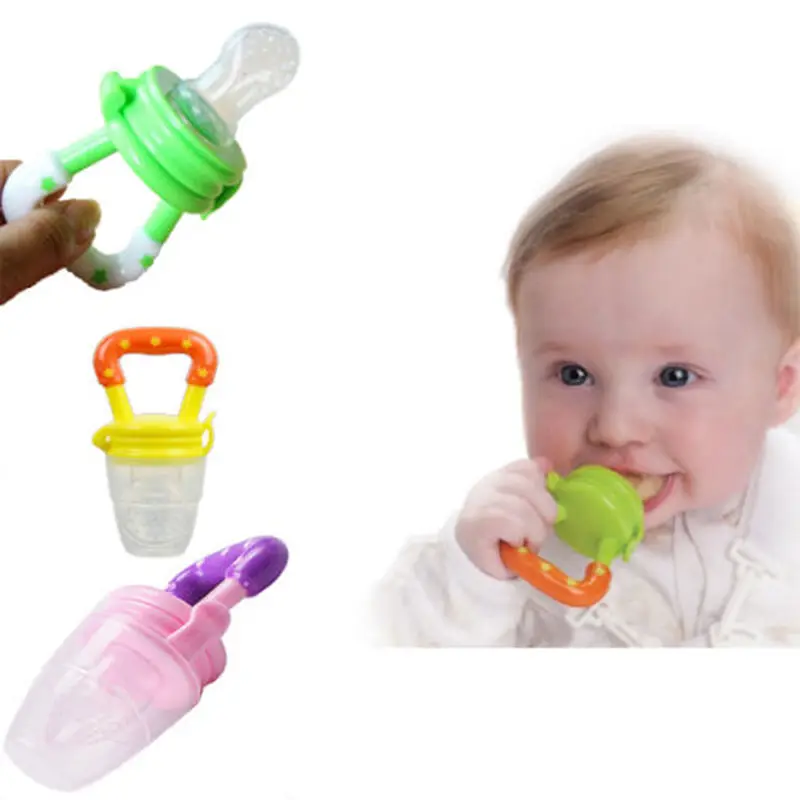 Against the backdrop of an endless ora, parents are already happy with every little thing. And since there are no other symptoms other than crying, then colic is not considered a disease. Doctors call them a functional disorder in the work of the gastrointestinal tract (this means that there is no structural disturbance in it, it’s just that the digestive system is not yet working quite correctly).
Against the backdrop of an endless ora, parents are already happy with every little thing. And since there are no other symptoms other than crying, then colic is not considered a disease. Doctors call them a functional disorder in the work of the gastrointestinal tract (this means that there is no structural disturbance in it, it’s just that the digestive system is not yet working quite correctly).
Have you read this far and become a little scary?
The best news: not all children have colic! There are lucky ones who only shrug their shoulders in surprise when asked if their child had colic.
The reason is not established
There is another interesting feature of colic: it is difficult to determine exactly why colic occurs. There are many reasons for this, and each baby can have his own:
- Enzymatic system of the gastrointestinal tract is not yet mature. Therefore, the food is not fully digested and too much gas is formed in the intestines, the gases stretch the walls of the intestine, hence the pain.
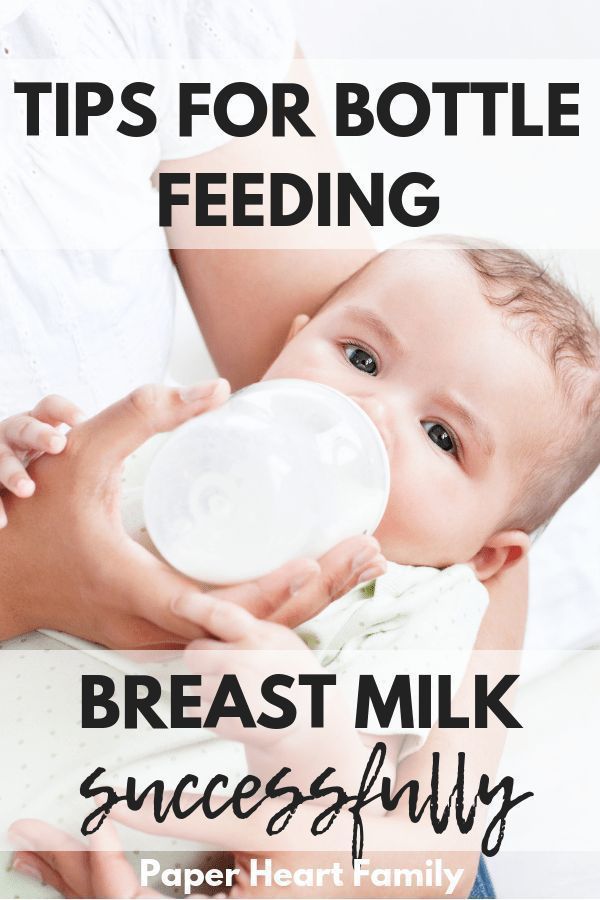
- The intestinal microflora is not yet fully established and changes frequently, again leading to excess gas and pain.
- The neuromuscular apparatus of the intestine is also not yet fully mature. As a result, intestinal motility and spasms increase.
- The baby swallows too much air during feeding (he is not attached to the breast correctly or he suckles too greedily). Air stretches the walls of the intestines, which is also painful for many children.
- Mom is breastfeeding and eating a lot of dairy products, and the baby is allergic to cow's milk protein. As a result of this allergy, the intestinal wall is damaged. Secondary lactase deficiency occurs, the child lacks the enzyme lactase, which breaks down milk sugar. Sugar ferments in the intestines, there are more and more gases and, as a result, pain occurs.
- The baby has an increased sensitivity of the intestinal wall to stretching. The child feels pain that another infant (or adult) will not pay attention to.
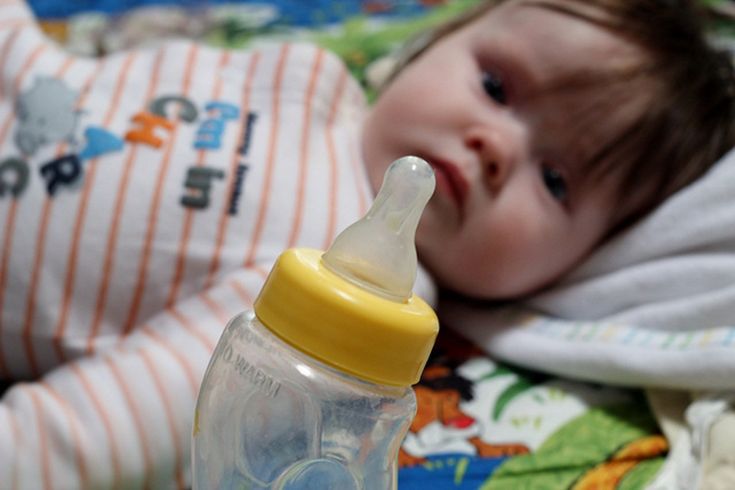
- If the baby is bottle-fed, then the whole thing may be in the mixture. Most likely, it is not suitable for a child.
Well, if the cause of colic is some one and not very serious. For example, a baby swallows a lot of air during feeding. Then the colic will not be too pronounced. In addition, it is not difficult to eliminate this cause, you just need to adjust the feeding. As a rule, colic is quite tolerable as long as the child has functional immaturity of the gastrointestinal tract (for example, the microflora has not been established or there are few enzymes). The baby cries in the evening, even if for three hours, but 21 hours out of 24 he is quite calm. In the end, when every evening (or three or four times a week) the same scenario is repeated, you already get used to it.
But if there are several causes of colic at once or there is an allergy to cow's milk protein with lactase deficiency, then parents will fully feel what it is like when a child throws a tantrum every two hours.
To make it easier for the pediatrician to figure out what is likely to cause colic, parents should tell them as much as possible about their child. To do this, will have to keep a diary of colic and nutrition of baby . By the way, some mothers are so addicted to these records that they continue to keep them even when the colic has already passed (just in case). Well, then they get used to the fact that there are no more colic, and calm down.
What should be recorded in the food diary:
- When colic occurs: before, during or after feeding, if after feeding, after what time.
- How long does colic last.
- Is there any rhythm in colic, do they occur at the same time or at different times.
- When colic is most pronounced (morning, afternoon, evening).
- How a mother feeds a child - breastfeeding or formula. If breastfeeding, then how many milliliters the baby eats in one feeding.
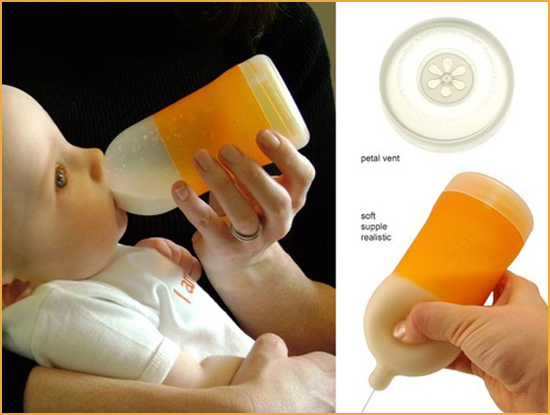 Breastfeeding by the hour or free.
Breastfeeding by the hour or free. - If formula is given, what kind, dosage and how often.
- What does a mother eat if she is breastfeeding.
What to do about it
Is it necessary to somehow examine a child with colic? Even if the doctor says that the baby has the most common colic, parents will still want to take a lot of tests and ultrasound of the abdominal cavity.
And it is clear that the more a child cries, the more mom and dad want to examine him .
Ultrasound usually shows that the structure of the internal organs of the child is all right (immaturity and allergy are not visible on ultrasound). But parents even from this are already calmer. In coprology (fecal analysis), some changes are possible, and in the analysis of feces for carbohydrates (it confirms lactase deficiency), carbohydrates will be increased. Microbiological examination of feces (sowing) does not bring clarity to the picture of colic.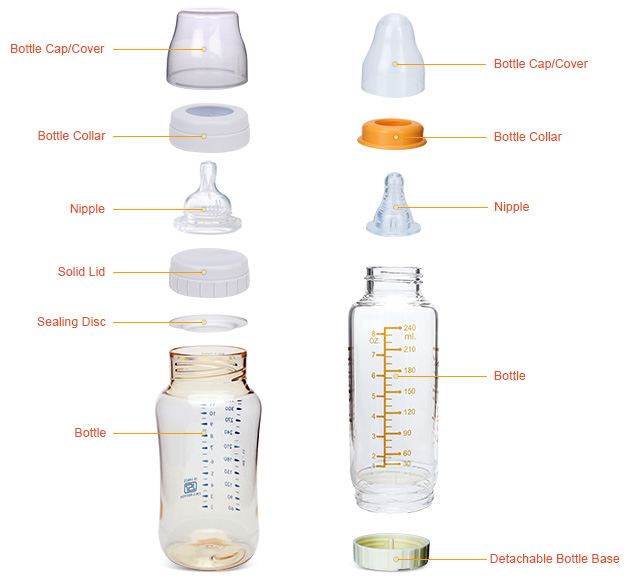 The composition of the microflora, and so on, may not yet be fully established, and against the background of increased gas formation, in addition, it will be changed.
The composition of the microflora, and so on, may not yet be fully established, and against the background of increased gas formation, in addition, it will be changed.
So what to do now? As already mentioned, colic disappears with age. Someone will say that you just need to be patient and wait. This, of course, is true, but when the baby cries and screams all the time, it affects the nervous system of everyone around. The situation in the house becomes nervous, the parents calm the baby with their last strength, and the mother also needs to feed the child, and walk with him, and cook food. Dad is also exhausted by endless screams and night vigils, and he is the breadwinner in the family, plus, if driving, he must concentrate on the road. In general, everyone needs rest, which means that colic needs to be dealt with somehow.
Let's say right away that there is no 100% effective treatment for colic: although many ways have been invented to deal with them.
Someone helps one thing, someone else - you have to try almost all methods:
Proper feeding .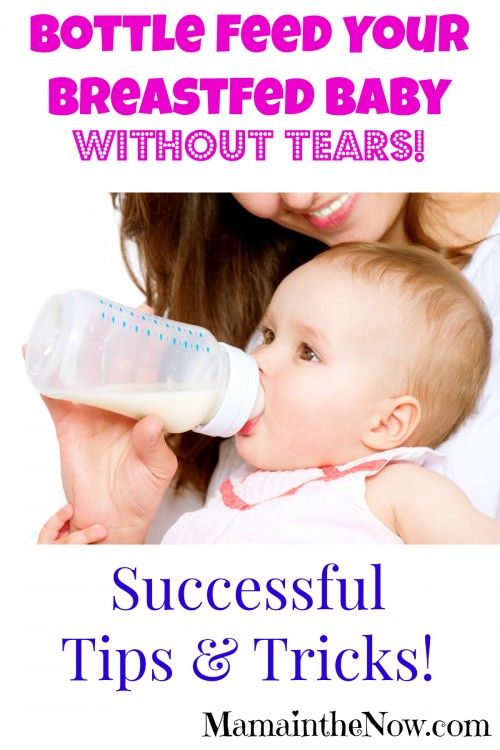 If the mother is breastfeeding on demand, then feeding should not become erratic, especially if colic is aggravated during meals or immediately after it. The baby should not swallow air during feeding, so you need to make sure that he completely captures the areola. If the baby is bottle-fed, then the nipple should be age-appropriate (the hole for milk in it should not be very large). You can use special anti-colic bottles - they prevent the swallowing of air during feeding. Before feeding the baby, you can put it on your stomach for 10-15 minutes, this stimulates the intestines. After feeding, the child must be held upright so that he burps the air. But for some reason, colic often occurs even if all these rules are observed.
If the mother is breastfeeding on demand, then feeding should not become erratic, especially if colic is aggravated during meals or immediately after it. The baby should not swallow air during feeding, so you need to make sure that he completely captures the areola. If the baby is bottle-fed, then the nipple should be age-appropriate (the hole for milk in it should not be very large). You can use special anti-colic bottles - they prevent the swallowing of air during feeding. Before feeding the baby, you can put it on your stomach for 10-15 minutes, this stimulates the intestines. After feeding, the child must be held upright so that he burps the air. But for some reason, colic often occurs even if all these rules are observed.
Heat and massage . For some children, colic is relieved (or relieved) by putting something warm on their stomach or simply taking a warm bath. Someone helps just a diaper folded several times and ironed with an iron. But caring fathers wear someone for hours, attaching to their chest, or simply put the baby on their stomach, but, alas, there is no effect.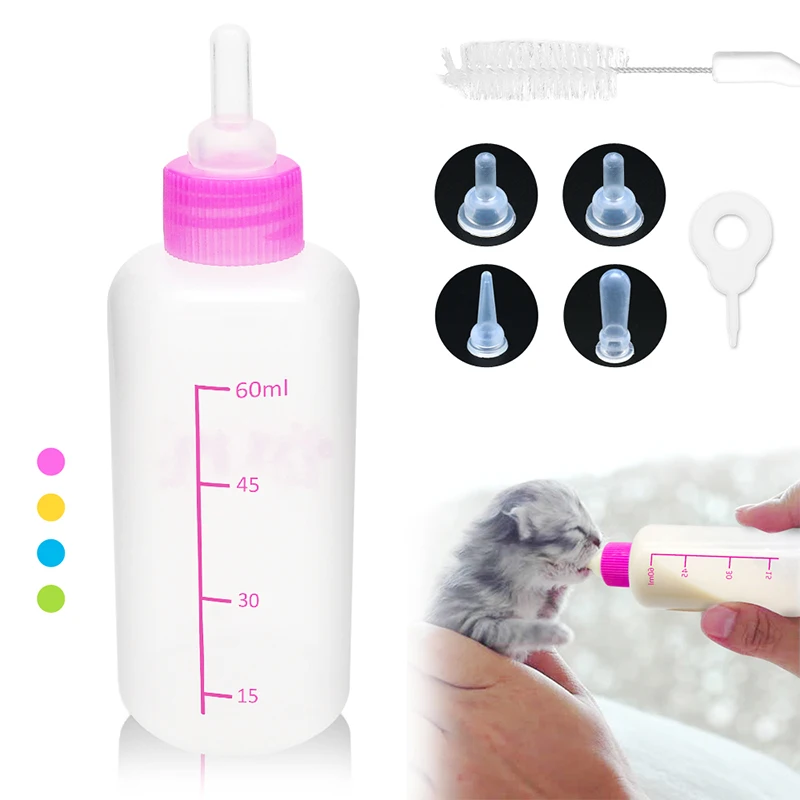 The same thing happens if you give the baby a light massage of the abdomen in a clockwise direction: it will not help, you can only guess.
The same thing happens if you give the baby a light massage of the abdomen in a clockwise direction: it will not help, you can only guess.
Mom's food . Pediatricians often recommend that mom exclude any dairy and sour-milk products (milk, cheese, cottage cheese, yogurt, kefir, ice cream) from her diet. Under the ban are products that, even partially, contain milk: for example, cookies, pastries. Well, women are no strangers to diets, especially since with severe colic in the crumbs, the mother will already agree to everything. Usually after 7-10 days you can see if the diet helps or not. If there are results, then it is most likely that the child is allergic to cow's milk protein and the mother will have to stay on a dairy-free diet for some more time.
Children's herbal teas and products with chamomile, fennel (they relieve intestinal spasm and improve flatulence) - again, the result is the opposite. But it is better not to give them yourself. Herbs can also be allergic, which will only increase colic.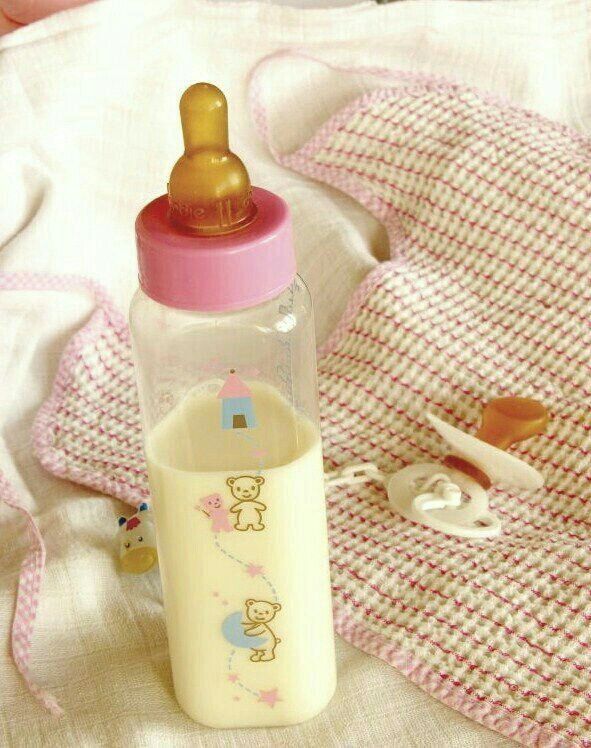 What remedy is better to give (or not to give anything at all), the pediatrician will decide.
What remedy is better to give (or not to give anything at all), the pediatrician will decide.
Drugs that destroy the walls of the gas bubble . Here, as with other methods, the effect is often temporary and not 100%. After all, these funds only relieve the symptoms, and the cause of gas formation remains.
Enzymes for lactase deficiency . If it is confirmed, then enzymes (lactase) help well. The main thing is that the cause of colic is established correctly.
Motion sickness, wheelchairs and driving . They always rocked children, but it’s just necessary to pump, and not shake the child like a pear. Violent shaking can cause a concussion.
Unconventional products . It sounds strange, of course, but some parents claim that the sound of a vacuum cleaner or a hair dryer calms a screaming baby well.
Another way is to sleep outside. There are such amazing babies who, for some reason, calm down perfectly in the fresh air in the evening, but as soon as their mother tries to return home, they instantly wake up and raise a cry.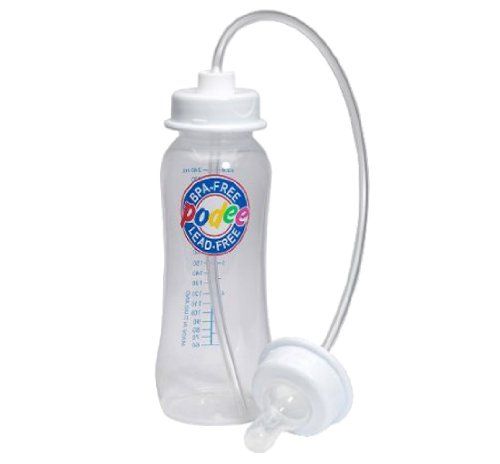 As soon as evening colic begins, mothers grab the child, the stroller - and run into the street. And it’s not at all about riding in a stroller: the baby sleeps even if she just stands still. This is how mothers sit at the entrance until midnight. Nothing to say - heroic women!
As soon as evening colic begins, mothers grab the child, the stroller - and run into the street. And it’s not at all about riding in a stroller: the baby sleeps even if she just stands still. This is how mothers sit at the entrance until midnight. Nothing to say - heroic women!
Does the child have colic? Answer questions :
- Did colic start at about 3-4 weeks of age?
- Appear regularly, more often in the evening?
- Does the attack last about half an hour or more?
- Is relief after passing flatus or stool?
- Is the seizure accompanied by restless behavior?
- The cry is loud, piercing, undulating (sometimes it fades, then it reappears)?
- The tummy is swollen, does the baby press the legs to the stomach or twist them?
If there is a majority of positive answers, the probability that it is colic is high.
The child is 3 months old or a little more, the baby is more often almost always joyful and cheerful.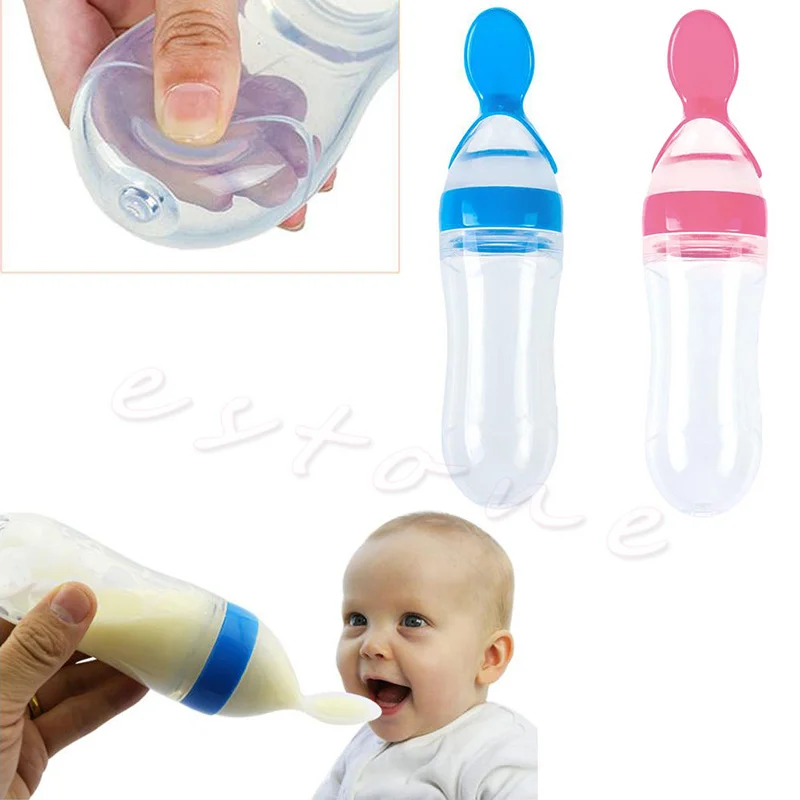 And suddenly - colic disappear completely. And parents? Parents do not believe their luck for a long time!
And suddenly - colic disappear completely. And parents? Parents do not believe their luck for a long time!
Why the baby arches and cries during feeding. Baby crying while feeding
Many parents complain that their child arches over and often cries. What could this strange behavior mean?
If your baby cries when feeding, it may well be that breastfeeding is not established correctly. If the baby cries during feeding, he may not latch on correctly and it is difficult for him to "get" milk.
The baby may have colic. The mother will help the baby cope with them if she herself adheres to a special diet, and the child is given herbal remedies based on dill and fennel, as well as bifido- and lactobacilli. It is useful to massage the baby, lay out his tummy.
Baby crying during feeding may mean that the baby feels discomfort or pain in the throat and mouth. Probable causes are thrush or pharyngitis, which require appropriate treatment.
Make sure that the baby's nose is not clogged, it can be difficult for him to breathe at the same time as eating, so the baby cries during feeding.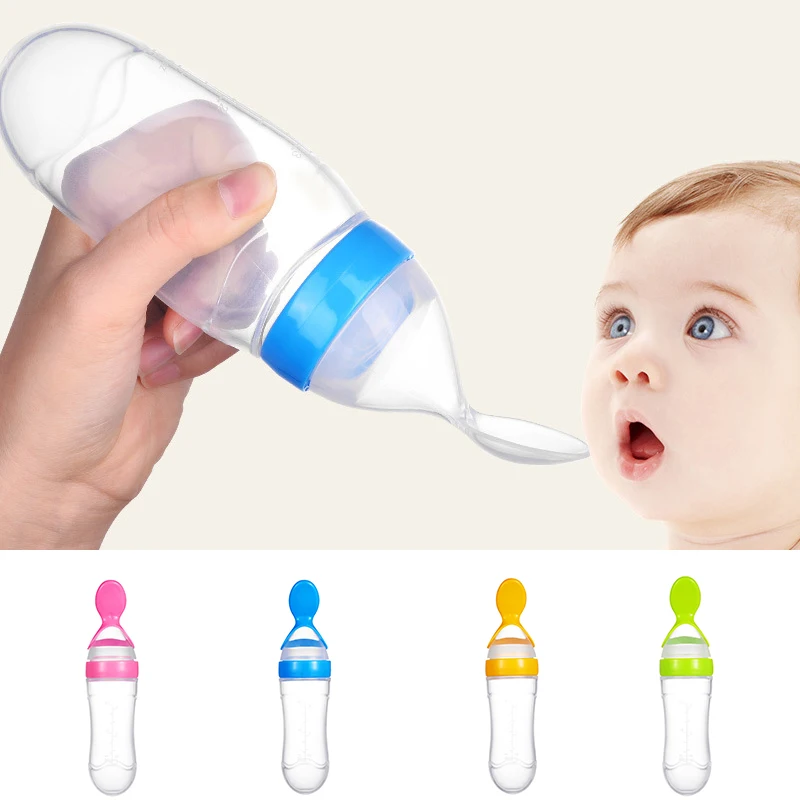
If the mother eats something spicy the day before feeding, the taste of food for the baby may not change for the better. You will notice how he either takes the breast, then throws it crying, and this is repeated over and over again. Control what you eat so that the baby does not cry once again during feeding, and the milk does not get a sharp taste.
Another reason why babies cry when feeding is a lack of milk. It is not difficult to check whether this is really the reason - you need to weigh the baby before and after he eats. Count wet diapers based on the normal amount of urination for a child of his age
It is not uncommon for a child to cry and arch over due to high muscle tone. To confirm or reject the assumption, you can try to pull the baby's head to the chest so that the chin touches it. If this cannot be done or there is a clear opposition, then you should seek help from a specialist.
The doctor will prescribe a massage for the baby and recommend rubbing the neck and lower back area with special gels.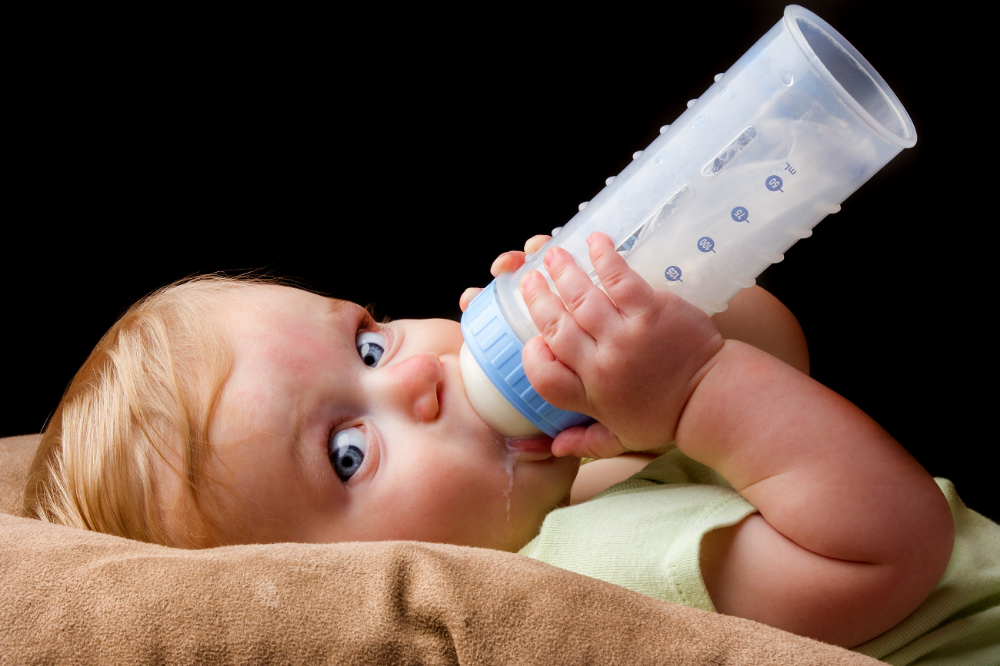 It is also useful to carry the baby in a “column” and arrange herbal baths with the addition of a decoction of soothing herbs (melissa, mint, chamomile, valerian root). An indication of neurological problems may also be the fact that the child arches in a dream.
It is also useful to carry the baby in a “column” and arrange herbal baths with the addition of a decoction of soothing herbs (melissa, mint, chamomile, valerian root). An indication of neurological problems may also be the fact that the child arches in a dream.
If your baby is crying while formula feeding, check the temperature of the food in the bottle to see if it is too hot for the baby.
Also, it will not be superfluous to check the size of the hole in the nipple. Perhaps it is small or, on the contrary, too big, and it is inconvenient for the baby to eat - it is difficult to suck out the mixture or the “flow” of milk chokes him, it is difficult for him to take large sips.
Often the baby cries while feeding. Moms worry, ask themselves: why? Crying is the only way for a newborn to tell that he is ill, that something does not suit him, or even hurts. Usually, feeding has a calming effect, the baby eats up and falls asleep. Crying during feeding, screaming, arching signal discomfort, what caused it?
The baby cries while feeding - a situation familiar to many mothers.![]() What to do?
What to do?
Why do children cry?
Discomfort may be caused by being wet or hungry. Everyone knows such common causes of crying, and they are easy to eliminate.
Often, at the first sign of displeasure from the baby, mothers begin to feed him, but if he does not want to breastfeed, they think that the breast is empty or too tight, they decide to supplement him with a bottle or switch to mixtures. However, the reason for crying may be different.
Doctors identify several possible causes. Discomfort can be caused by:
- improper feeding technique;
- physical condition of the baby;
- premature introduction of complementary foods.
Procedure and features of feeding
There are certain feeding rules that must be observed. It must be remembered that:
- The baby should be fed not according to the schedule established by adults, but at will. A healthy baby will determine which hours are suitable for eating and will observe the prescribed intervals.
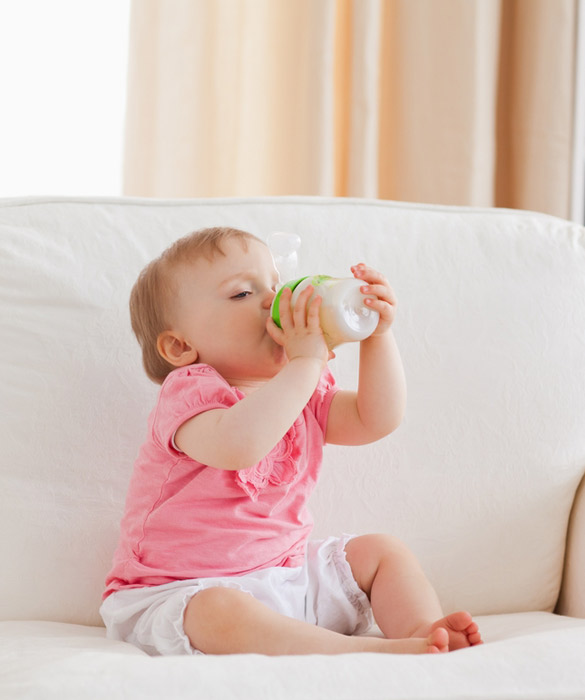 It is not worth forcing a regimen on him: until he is hungry, he will not suck out the norm, and then he will get hungry too quickly.
It is not worth forcing a regimen on him: until he is hungry, he will not suck out the norm, and then he will get hungry too quickly. - Very important to the chest, so that he is comfortable. The inability to grasp the nipple unnerves the child, he arches his back and cries.
- Supplementation through the nipple is dangerous because it is much easier to suck than the breast. The baby quickly understands that it is not necessary to expend effort to get food, and refuses to breastfeed. Choosing a pacifier with small holes can solve this problem. Let the baby work hard, it is very useful for him.
- The baby does not want to eat if he does not like the taste of milk. A hungry baby sucks at first, but throws up the breast, cries and squirms. Then he tries to eat again, and everything repeats. This happens when the mother eats something spicy or odorous, the taste of milk has changed and the baby does not like it. A change in the taste of milk is also possible with the onset of a second pregnancy.
 Milk is bitter, and the child refuses it.
Milk is bitter, and the child refuses it. - Discomfort can also be caused by too much milk. At the first touch of small sponges, it begins to spurt, the baby chokes, arches and cries. To avoid trouble, you can express a portion of milk, but only if there is really a lot of it. In the future, the baby will learn to cope with this problem on his own.
Breasts that are too tight can cause babies to cry. In this situation, mommy just needs to express her breasts a little
Health-related crying
Why does the baby cry during feeding? The baby may cry because something hurts him. Such crying is possible both in case of illness, and in the case when external causes interfere with normal nutrition.
The underdevelopment of the gastrointestinal tract of babies often leads to the fact that they are tormented by colic from the accumulation of gases. After childbirth, the child learns a new way of eating for himself, the intestinal flora is still being formed, and the production of enzymes is also still insufficient.
The formation of gas in the tummy, caused by these causes, gives the baby a lot of trouble. Signs of colic can be leg twitching, a hard tummy, and attempts to arch. The baby blushes, frowns, arches.
Help your baby quickly by stroking the tummy clockwise around the navel. Receiving, following a diet by a nursing mother, replacing a mixture containing palm oil with another one without this component will help to avoid this problem in the future. It is also recommended to put the baby on the tummy before feeding so that the gases go away, and after eating, hold him in an upright position, holding him behind his back, this will help him burp the air that has entered the intestines along with milk.
Painful conditions
- Crying can signal illness. Inflammation of the middle ear (otitis media) causes pain when swallowing. The disease is accompanied by fever, pressing on the ear causes a sharp pain. This disease will not go away on its own, it is very dangerous for people of any age, and especially for newborns.
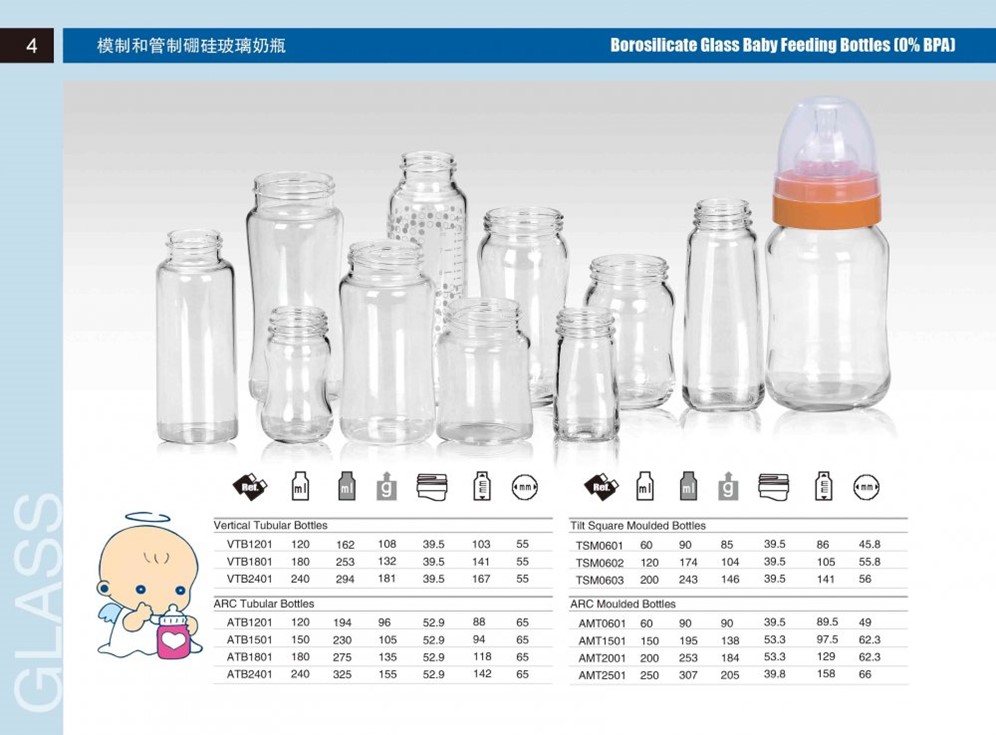 The suspicions that have arisen should be dispelled by the doctor, self-medication in this case is contraindicated.
The suspicions that have arisen should be dispelled by the doctor, self-medication in this case is contraindicated. - Oral diseases also lead to crying while suckling. The mucous membrane of the mouth is affected by thrush or stomatitis, causing acute pain. The doctor must treat the pathology.
- Nasal congestion also prevents the baby from sucking, choking and choking. A runny nose occurs due to allergies or SARS, in such a situation the disease must be treated, and as a first aid to eliminate the causes of discomfort, it is useful to clean the baby's nose with cotton turundas moistened with water or vaseline oil.
- Swallowing is also difficult with headache. Its occurrence in an infant can be a sign of a serious illness, so if other causes of crying during feeding are not identified, you should consult a neurologist.
- Increased muscle tone also leads to difficulty sucking. Only a doctor can determine the presence of a symptom, but beforehand, the mother is able to conduct a simple experiment.
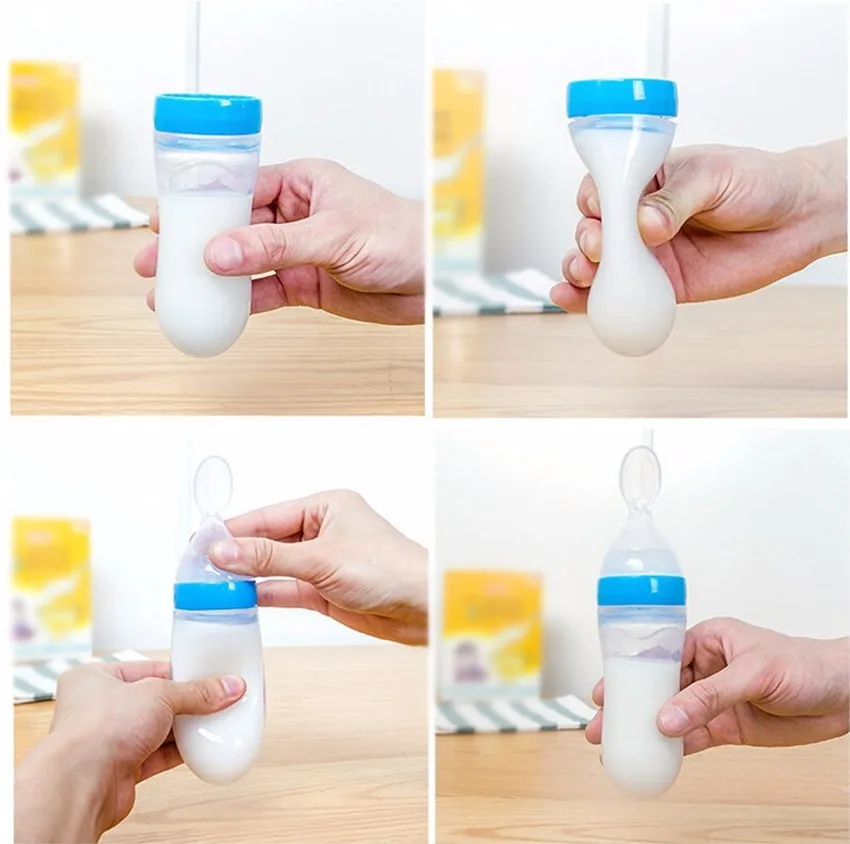 Gently pulling the child's chin to the chest, you need to check whether this causes difficulties, or the child can reach the breast with his chin without any effort. Identification of increased tone will require therapeutic measures that will give the best results, the sooner they are started. An increased tone is treated with the help of baths, massage, and other physiotherapeutic procedures. All appointments are made by the doctor, he also decides when the procedures can be stopped.
Gently pulling the child's chin to the chest, you need to check whether this causes difficulties, or the child can reach the breast with his chin without any effort. Identification of increased tone will require therapeutic measures that will give the best results, the sooner they are started. An increased tone is treated with the help of baths, massage, and other physiotherapeutic procedures. All appointments are made by the doctor, he also decides when the procedures can be stopped.
External causes
An external cause preventing the baby from sucking is fear (we recommend reading: ). A sharp sound, a bright flash of light unnerve the child, make him act up and cry. Nerves the child and the excited state of the mother. Screams, swearing excite him, frighten him, interfere with eating. It is necessary to enter into the position of crumbs, to keep peace and tranquility at home.
The little man, though small, already feels everything. Therefore, parents need to create a favorable environment in the family
Weaning routine
Some mothers try to feed their baby from 4 months, but this is wrong.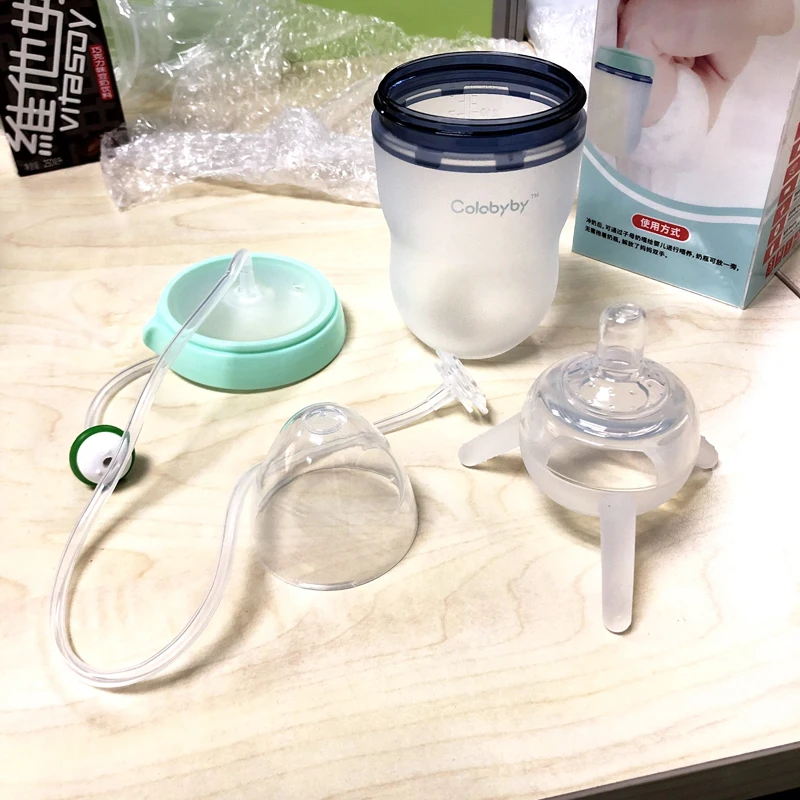 Complementary foods are recommended to be introduced to the baby from 6 months, however, this period can be adjusted depending on various circumstances.
Complementary foods are recommended to be introduced to the baby from 6 months, however, this period can be adjusted depending on various circumstances.
The development of internal organs in all babies occurs at different rates. Children who are on breastfeeding are ready to receive complementary foods just in half a year. Babies who receive a mixed diet or only formula milk are slower to adapt to new foods, 6 months old are not yet ready to eat complementary foods. The baby will simply refuse to eat it, since the baby's body cannot absorb it. Premature introduction of new foods into the diet can lead to negative consequences:
- the baby will refuse new foods, will not even want to eat fruit purees;
- possible reactions from the digestive system, such as constipation or diarrhea, allergic reactions, expressed in skin rashes;
- crying and whims while eating.
What to do?
It will be possible to help the baby only if the cause of crying is correctly identified.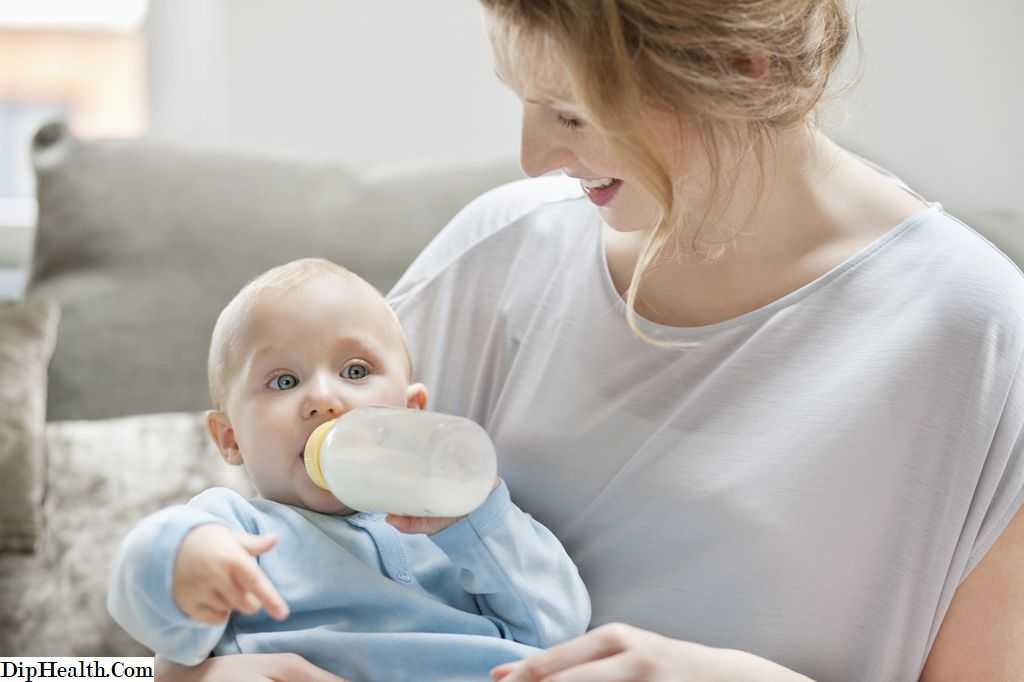 By relieving the baby of the source of trouble, you can restore the calming effect of feeding.
By relieving the baby of the source of trouble, you can restore the calming effect of feeding.
First of all, the mother needs to examine the child and, if there is no reason to call a doctor, just calm him down by hugging and caressing the baby
To make the child calmer, you must follow some rules:
- temporarily limit the number of strangers in contact with the child of people;
- avoid loud conversations, and especially swearing, showdown in his presence: the baby feels the state of loved ones, it excites him very much;
- mother's voice, the warmth of mother's hands soothe the baby, so it is useful to hold him close to you, to stroke his tummy;
- breast should be given in such a way that it is convenient for him to eat, breasts that are too tight or full of milk can be drained a little so that it is easier for him to take the nipple and he does not choke;
- it is necessary to adhere to the usual feeding schedule for the baby;
- unwillingness to suckle may in rare cases indicate that the baby refuses breast milk, it must be transferred to artificial formulas;
- unwillingness to eat and even try complementary foods suggests that the baby has enough of the usual food, you have to wait until 1-2 months have passed, he will grow up and begin to eat complementary foods willingly.
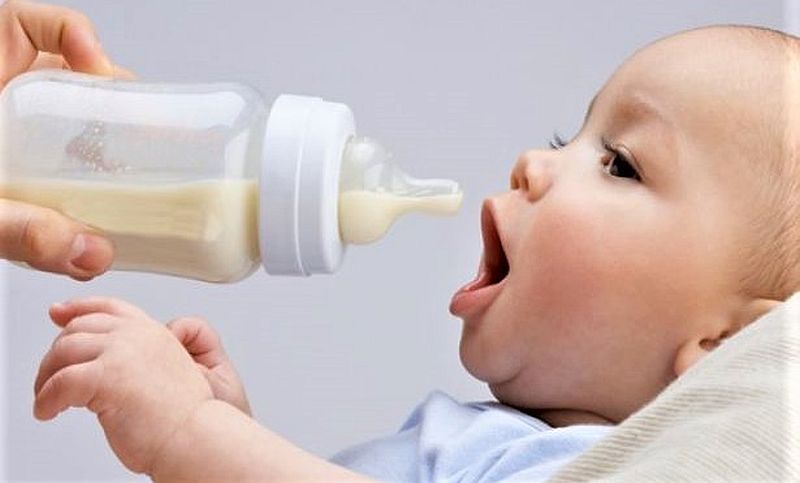
When is the right time to see a doctor?
It happens that a mother is not able to determine for herself what does not suit her child, all attempts to eliminate discomfort do not work. You should consult a doctor if:
- a breastfed baby has not walked for 3 days;
- the baby's sleep became restless;
- increased body temperature;
- the child looks lethargic;
- profuse regurgitation, vomiting;
- the baby cries a lot, it is very difficult to calm him down.
Dr. Komarovsky, well known to modern mothers, recommends that when crying during feeding, carefully examine the mouth, make sure that it does not have stomatitis. Dry air in the room can also make sucking difficult, causing the mouth to dry out. The problem can also arise due to malnutrition of a nursing mother. A possible cause may also be an irregular flow of milk, in this case, breast massage before feeding, drinking plenty of water will help.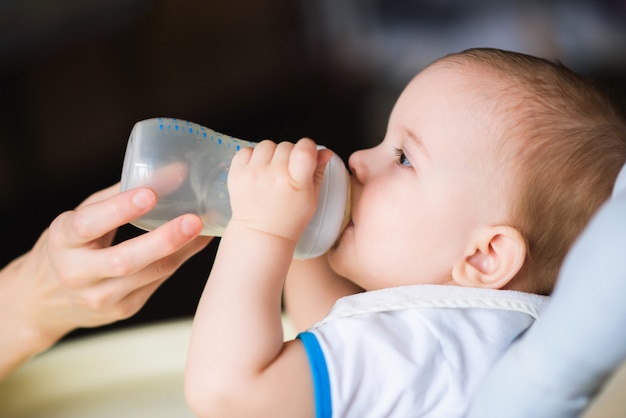 Colic in the intestines is best relieved with drugs based on simethicone. However, we must remember that it is dangerous to prescribe treatment for a baby on your own, you must definitely consult a doctor.
Colic in the intestines is best relieved with drugs based on simethicone. However, we must remember that it is dangerous to prescribe treatment for a baby on your own, you must definitely consult a doctor.
Often there is a situation in which the mother sees the child's dissatisfaction with feeding, he cries and refuses to eat. In order to solve the problem that has arisen, it is necessary to understand the causes that cause it. If you can’t figure out the problem on your own, you need to get advice from a pediatrician.
There can be many reasons why a child cries during feeding:
- pain in the stomach and intestines, in cases where the child's digestive system has not yet been able to adapt to independent existence;
- penetration of air bubbles into the baby's tummy when he swallows mother's milk;
- a baby may simply not like the taste of his mother's milk if he drops the breast immediately after taking it;
- an excessively strong milk stream, as a result of which the child simply cannot drink milk.
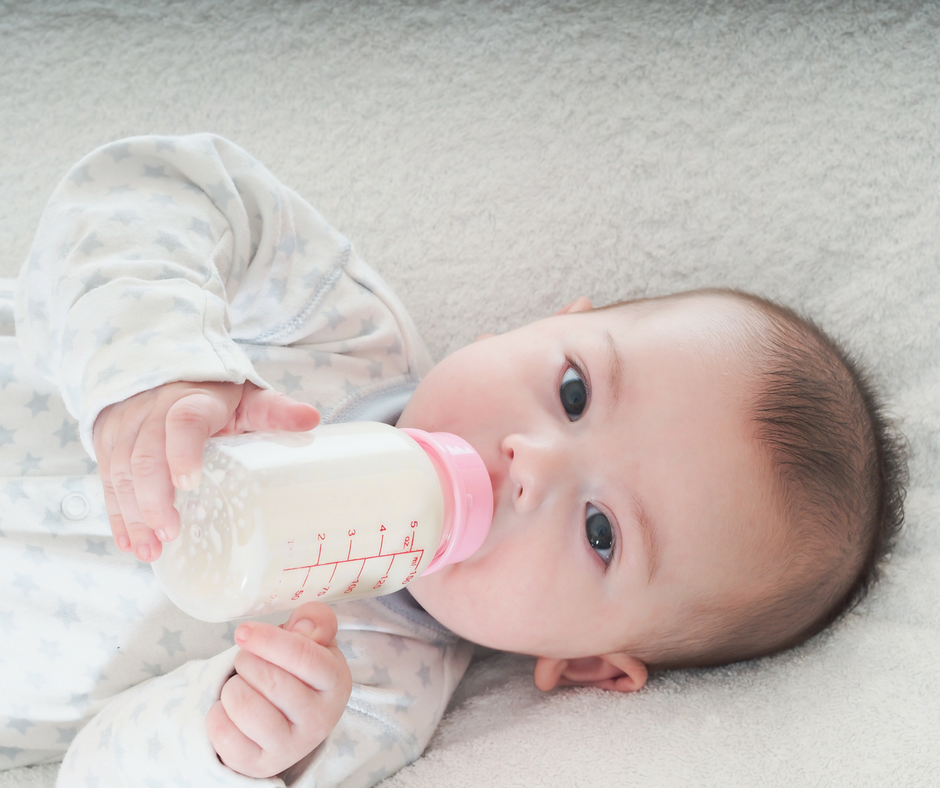
In addition, the crying of a child during feeding may be associated with problems in his digestive system, both congenital and acquired.
A baby cries while bottle feeding
A baby is bottle fed when the mother is unable to breastfeed naturally. It happens that breastfeeding alternates with bottle feeding, in other cases, the container completely replaces natural feeding. It is advisable to clearly imagine what exactly needs to be done if the baby cries while feeding from a bottle.
If the cause of the crying of the child when feeding him from a bottle is found in time and eliminated, the situation resolves itself. From the mother in such a situation, a fair amount of patience is required. And the reasons for what is happening can be the following.
The temperature of the mixture should be checked as it can be very hot. If the child is naughty, it is recommended to first simply cool the mixture.
The baby may cry while bottle feeding if it is uncomfortable to lie down.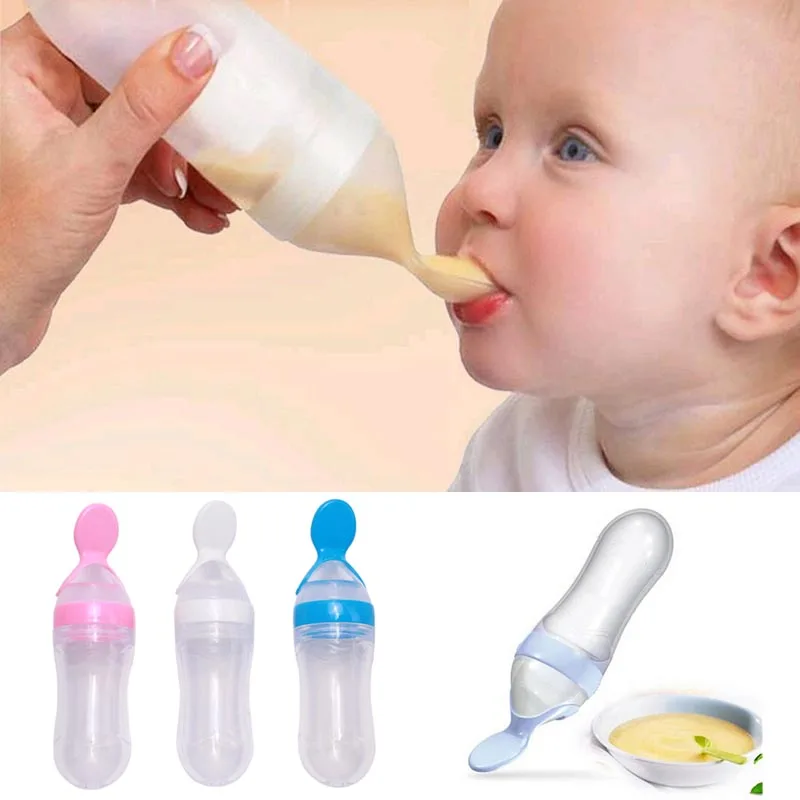 It is fashionable to try turning it on its side, holding it upright or planting it.
It is fashionable to try turning it on its side, holding it upright or planting it.
The baby cries during breastfeeding
The baby may cry during breastfeeding if he does not like mother's milk. To prevent this from happening during lactation, the mother should adhere to dietary requirements, refrain from eating onions, spices, garlic and pepper.
The crying of a baby during breastfeeding can be explained by violations of the outflow of mother's milk. In such situations, it can be difficult for the baby to suckle the breast after he takes it into his mouth. This most often occurs in the very first days after childbirth, when the child has not yet learned to suck well. In the breast, in case of violation of the outflow of milk, a special plug is formed, which can cause blockage of the mammary gland and the formation of mastitis. To prevent this from happening, special preventive measures should be observed.
Mother's milk may simply not be enough, and in such cases the child remains hungry.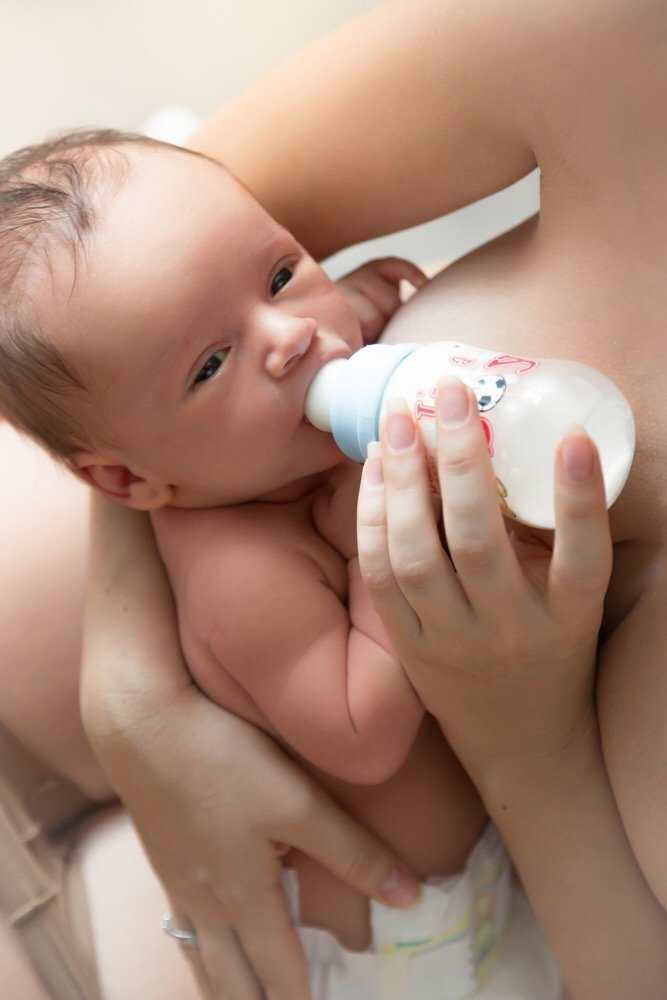 In order for lactation to take place fully and without significant violations, the mother should drink warm teas every day. In such cases, you can feed the baby with additional milk formula.
In order for lactation to take place fully and without significant violations, the mother should drink warm teas every day. In such cases, you can feed the baby with additional milk formula.
The baby arches and cries during feeding
It often happens that the baby begins to arch and cry during feeding. The reasons for what is happening can be:
- neurological problems that are not directly related to the feeding process;
- colic in the stomach and intestines;
- the child may be very dissatisfied with the volume and quality of the milk he drinks;
- the baby can simply be capricious.
Some mothers believe that this behavior of the baby can only occur during breastfeeding and not be observed during bottle feeding. However, this can happen in all cases and be explained by the same reasons. You need to find them out in order to fix them.
The baby pushes and cries during feeding
When feeding, the baby may not only cry, but also grunt and push. This behavior is explained by the fact that the baby simply cannot explain in words what worries him so much, therefore he is forced to react to what is happening in this way.
This behavior is explained by the fact that the baby simply cannot explain in words what worries him so much, therefore he is forced to react to what is happening in this way.
There may be several reasons for this. First of all, this behavior is caused by colic in the intestines. Similar disorders are observed in almost all newborns and should not be afraid of this. Also, the child often strains and cries when feeding with increased formation of gases in the intestines, as well as with painful cramps in the abdomen. It is recommended to properly feed the child so that excess air does not get into his tummy. It's best to keep him in a crouched position, this helps prevent unwanted air from getting into his tummy. In addition, it is better for the mother to stop eating foods that can cause gas in the baby's tummy.
Baby cries while feeding, what should I do?
In order to determine the course of action in the event of a baby crying during feeding, you should first of all understand the reasons for what is happening. There are a great many reasons for such behavior, in order to prevent their occurrence, the process of feeding the child should be properly organized.
There are a great many reasons for such behavior, in order to prevent their occurrence, the process of feeding the child should be properly organized.
How to feed your baby correctly
Proper feeding of the baby involves placing the baby and mother in the most comfortable position for them. Recommendations for doing this might be:
- the baby and his mother should be placed in the most comfortable position for both, for which it is recommended to lie on a sofa or a soft bed, keep the baby on its side, or press it to the body;
- The baby's head should be in a position slightly above his buttocks, while his neck should not be bent;
- do not use force to press the baby's head to the chest, you should only indicate the direction of rotation of the baby's head;
- should ensure maximum contact between the bodies of a nursing mother and a child, it is better to free the baby from clothes if possible.
If the process of feeding a child is organized correctly, he will always eat well, which will positively affect his development, growth and health.

